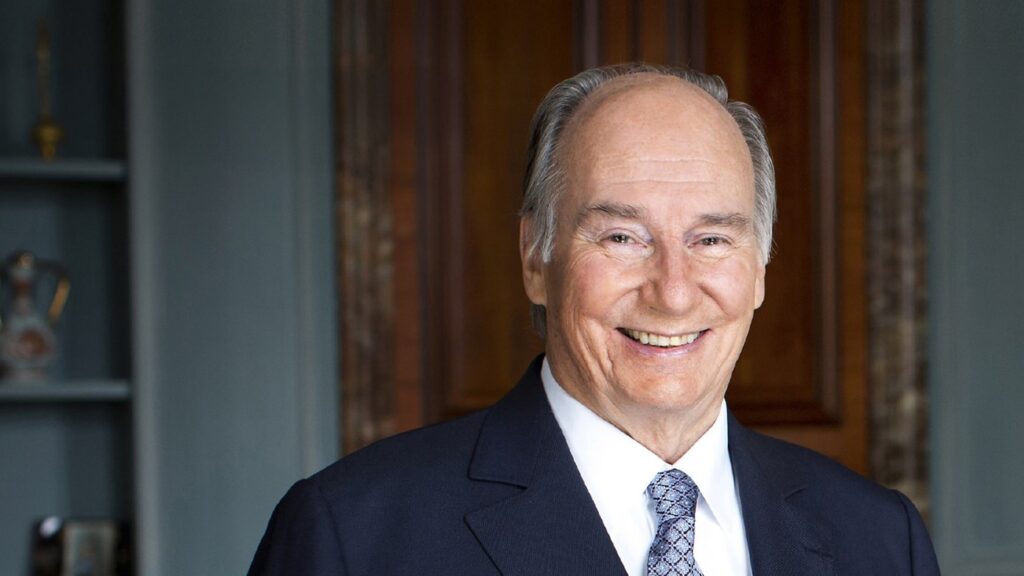LISBON, PORTUGAL: Prince Karim al-Hussaini Aga Khan IV passed away in Lisbon, Portugal, at the age of 88. He was the 49th hereditary Imam (spiritual leader) of the Shia Ismaili Muslims. He held the position for 67 years after he succeeded his grandfather, Sir Sultan Mahomed Shah Aga Khan III, in 1957, at the age of 20.
In his role as Imam of the Ismaili community, Prince Karim Aga Khan dedicated his efforts to the spiritual and material well-being of over 15 million Ismailis in more than 25 countries across Central Asia, the Middle East, South Asia, sub-Saharan Africa, Australasia, the Far East, Europe and North America.
He was committed to improving the quality of life of vulnerable populations through the Aga Khan Development Network (AKDN), and was recognised globally as a statesman and humanitarian.
He was born on December 13, 1936 in Geneva. The eldest son of Prince Aly Khan by his first wife, Joan Yarde-Buller, he spent his early childhood in Nairobi, Kenya and attended the Institut Le Rosey in Switzerland. He graduated from Harvard University in 1959 with a Bachelor of Arts Degree in Islamic History.
Prince Karim Aga Khan was married twice. In 1969, he married Sarah Frances Croker Poole, who assumed the Muslim name Begum Salimah. They divorced in 1995. In 1998, Prince Karim Aga Khan married Gabriele Renate Thyssen, who assumed the Muslim name Begum Inaara.
They divorced in 2011. He is survived by his children Princess Zahra, Prince Rahim, Prince Hussain and Prince Aly Mohammad, his brother Prince Amyn Mohammad, sister Princess Yasmin, and four grandchildren.
An inspiring leader, gifted statesman and great humanitarian, the Aga Khan embodied the understanding, tolerance and ecumenism shared by the world’s great religions.
He promoted the crucial importance of peace as a foundational building block for the progress of society.
The Aga Khan’s personal efforts over the course of six decades played a vital role in bringing peace to a fragmented world. He facilitated diplomatic talks at regional and global levels, including the landmark 1985 summit between Presidents Reagan and Gorbachev in Geneva.
Throughout his life, Prince Karim Aga Khan emphasised the view of Islam as a thinking, spiritual faith: one that teaches compassion and tolerance and that upholds the dignity of humankind.
As such, pluralism – the embrace and celebration of diversity – has formed a central pillar of the Ismaili Imamat’s work. In partnership with the Government of Canada, the Aga Khan founded the Global Centre for Pluralism in 2006. The Centre works with policy leaders, educators and community builders around the world to amplify and implement the transformative power of pluralism.
Continuing a familial history of public service – his grandfather was twice President of the League of Nations and his uncle was a long-serving UN High Commissioner for Refugees – Prince Karim Aga Khan cared deeply about the continued development of communities and societies, including, but not limited to, his own. This stemmed from the responsibility of the Imam, as he saw it, to help improve the quality of life of the most vulnerable populations.
To this end, and guided by the ethical principles of Islam, he established the Aga Khan Development Network.
Prince Karim Aga Khan founded what is today known as the Aga Khan Development Network more than 50 years ago.
Its purpose is to improve the quality of life of those in need – regardless of origin, race, gender, or religion – through efforts in health care, education, habitat, culture and the creation of economic opportunity. The AKDN is active in more than 30 countries, with a particular focus on some of the poorest parts of Asia and Africa.
Providing access to high-quality education in the developing world and promoting gender-equal education were among Prince Karim Aga Khan’s most important priorities. He inherited and enhanced schools that his grandfather, Aga Khan III, established in Asia and Africa, and expanded the portfolio of 200 schools to serve more than 85,000 students.
Following the tradition of his ancestors, who founded Al-Azhar University in Cairo in 970, Aga Khan placed great importance on education. He established the Aga Khan University in 1983 as Pakistan’s first private, internationally chartered university, which is home to leading medical, nursing and education faculties and programmes.
It operates in six countries. In partnership with the governments of Tajikistan, the Kyrgyz Republic and Kazakhstan through an international treaty, he founded the University of Central Asia in 2000 to improve the social and economic development of Central Asia with special attention to its high mountain societies. Aga Khan also welcomed and supported partnerships with leading universities across the world, and endowed programmes at Harvard, MIT and Brown.
The Aga Khan was deeply engaged in the arts and cultural matters, and established programmes and initiatives to support architecture, music and conservation.
The Aga Khan Award for Architecture – established in 1977, and with a prize fund of $1 million – is awarded every three years to projects that set new standards of excellence in architecture, planning practices, preservation and landscape architecture, while the Aga Khan Music Programme fosters the development of musical heritage in societies where Muslims have a significant presence.
The Aga Khan Historic Cities Programme supports the delivery of restoration and conservation projects and the creation of parks and gardens, such as the Al-Azhar Park in Cairo. Underlining his commitment to preserving Muslim heritage, in 2014 His Highness opened the Aga Khan Museum in Toronto, home to over 1,000 masterpieces showcasing the arts of Muslim civilisations.
Building on a long family tradition, the Aga Khan was a globally recognised horse owner and breeder. With stud farms in France and Ireland where his racehorses are bred and raised, Prince Karim Aga Khan had five Derby winners – including Shergar, who won the Irish and Epsom Derbys – four winners of the Prix de l’Arc de Triomphe, and a record seven winners of the Prix de Diane. An accomplished skier, Aga Khan represented Iran in the 1964 Innsbruck Winter Olympics.
In keeping with the recognition accorded to the previous three Aga Khans by the British monarchs, Queen Elizabeth II granted the title His Highness to Aga Khan IV in 1957.
In acknowledgement of his exceptional contributions to human development and improving the social condition of societies globally, Prince Karim Aga Khan received distinctions of honour from France, Portugal, Kenya, Canada, the United Kingdom, Iran, India, Pakistan and Senegal.
He received 44 international awards, including honorary Canadian citizenship and the UN Champion for Global Change Award, and was the recipient of 24 honorary degrees from leading institutions such as Cambridge, Harvard and McGill.



